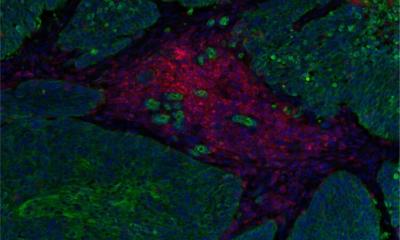
Source: Loyola University Health System
News • Research
Non-small cell lung cancer: women live longer than men
Women diagnosed with non-small cell lung cancers (NSCLC) live longer than their male counterparts, according to results of a SWOG study presented by Loyola Medicine researcher Kathy Albain, MD, at the International Association for the Study of Lung Cancer's 19th World Conference on Lung Cancer in Toronto.
Dr. Albain led the international study, S0424, for SWOG, the cancer clinical trials group that is part of the National Cancer Institute's National Clinical Trials Network, the nation's oldest and largest publicly-funded cancer research network. Dr. Albain and her SWOG team studied 981 patients newly diagnosed with stage I, II or III NSCLC. Non-small cell lung cancers account for about 80 to 85 percent of all lung cancers.
Researchers grouped patients into four groups based on sex and smoking history. Then, they analyzed data on cancer stage, patients' tumor type and mutations, hormonal influences, treatment plans and survival rates. Patients were followed for five years, or until their deaths, in order to determine overall survival, or how long they lived after enrolling in the trial.
Prospective trial
The study is the first prospective trial of this scope for NSCLC, designed specifically to follow survival outcomes. It represents collaboration across the clinical trials network, and included researchers from Canada and Japan.
Regardless of smoking history or any other factor, women in S0424 had significantly better overall survival (OS) rates compared to men. The analysis found that female never-smokers (FNS) and female ever-smokers (FES) had significantly better OS compared to male never-smokers (MNS) and male ever-smokers (MES). Five-year estimates reported overall survival at 73 percent for FNS, 69 percent for FES, 58 percent for MNS and 52 percent for MES. Women lived longer, even when adjustments were made for the medical care they received, their smoking history, hormonal factors, or the presence of mutations in their tumors common to NSCLC types.
"Females with NSCLC survive better, even when we control for every factor that might influence survival in NSCLC, including tobacco and other exposures, lifestyle factors, disease stage, treatment, tumor biology and hormonal factors," Dr. Albain said. "Additional study is needed to further investigate favorable female survival in this population and our large clinical trials need to be equally balanced for females."
Source: Loyola University Health System
02.10.2018











